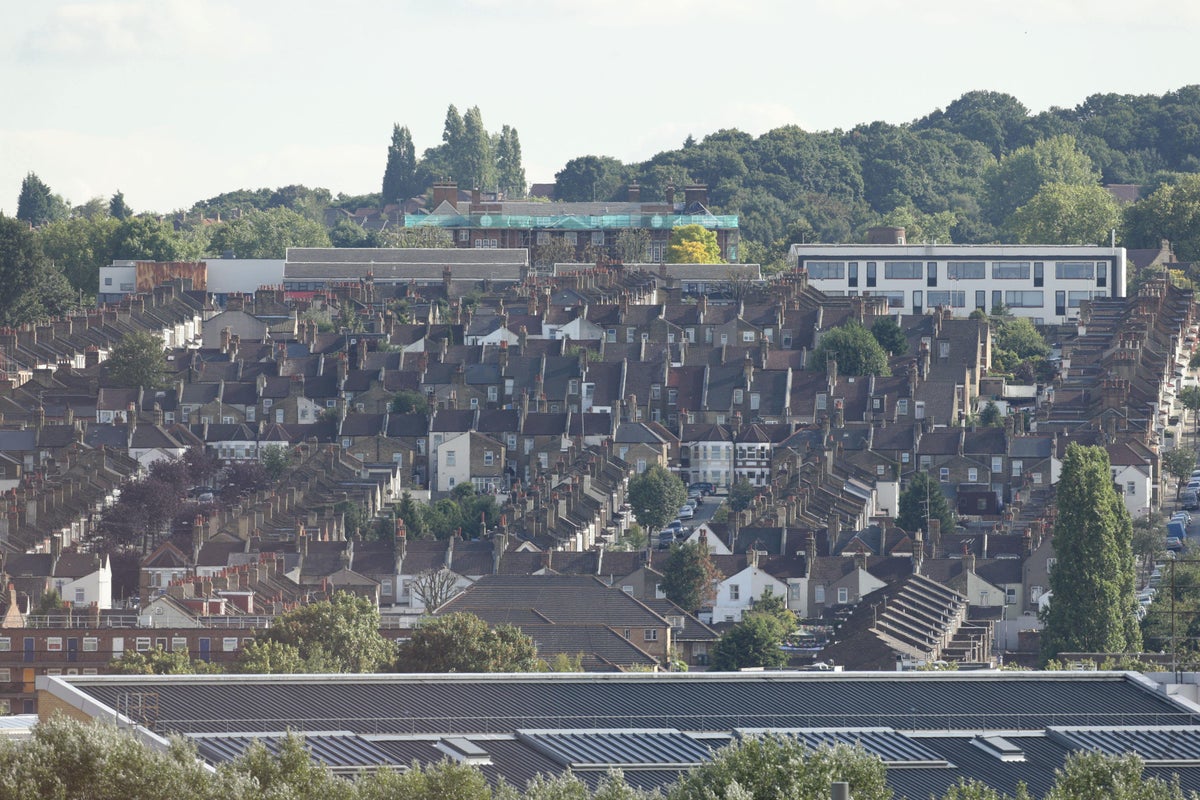
The average price of a home coming on the market fell by more than £6,000, month on month, in November, according to a property website.
Across Britain, average asking prices by new sellers fell by 1.7 per cent (£6,088) this month to reach £362,143, Rightmove said.
While asking prices do usually record a fall at this time of year, the 1.7 per cent fall is the biggest percentage drop recorded for the month of November in five years, the report said.
Rightmove said the fall indicates that new sellers are increasingly adopting more realistic price expectations from the outset of their marketing, to tempt potential buyers.
Tim Bannister, Rightmove’s director of property science, said: “We’d expect to see a drop in new seller asking prices in the last couple of months of the year, as serious sellers start to separate themselves from discretionary sellers and cut through the Christmas noise with an attractive price to secure a buyer.
“However, the larger-than-usual drop this month signals that among the usual pricing seasonality, we are starting to see more new sellers heed their agents’ advice and come to market with more enticing prices to stand out from their over-optimistic competition.
“Buyers are still out there, but for many their affordability is much reduced due to higher mortgage rates.
“It now looks like more sellers are understanding Rightmove’s research; that the chances of securing a buyer are much greater if they price right the first time, rather than over-pricing and reducing their price later.”
The number of sales being agreed is now 10 per cent below the same period in 2019, improving from being 15 per cent below 2019’s level last month, Rightmove said.
The number of available homes for sale is 1 per cent behind this time in 2019.
These are averages across Britain and some areas and sectors are faring better than others, the website said.
The number of sales being agreed in the smallest homes sector (studio, one and two-bed properties) is just 7 per cent lower than 2019’s level.
In the “top of the ladder” sector (four-bedroom detached houses and all five-bedroom-plus properties), agreed sales are 14 per cent behind 2019 levels.
Pricing right is the most important tool for potential sellers at the moment— Ian Preston, Yorkshire estate agent Preston Baker
Meanwhile, there are yearly price declines in the Midlands and in southern England, while the more affordable areas of Wales, Scotland and northern England have seen asking price rises, the website said.
Ian Preston, managing director at Yorkshire estate agent Preston Baker said: “The market is resilient and more in favour of buyers compared to the past two years.
“Pricing right is the most important tool for potential sellers at the moment.
“We have seen several sellers try to test the market with an over-optimistic price to qualified buyers.
“However, the consequences of getting it wrong are pronounced, with the data showing that many sellers who don’t get the price right the first time end up wasting a huge amount of time and money.”
Matt Nicol, managing director at Worcestershire estate agent Nicol & Co said: “Buyers have much more choice than a year or two ago, meaning if sellers price too optimistically, buyers are going to look towards their more competitively-priced neighbours.
“However, we are starting to see more pricing realism from sellers compared to a few months ago, and activity levels are positive so far in November. There are certainly still buyers out there ready to take the leap if the price is right.
“Two consecutive base rate holds, much steadier fixed-rate mortgage deals on offer, and a general feeling that rates may have now peaked, are giving some assurance and confidence to buyers.”
Meanwhile, estate agent Hamptons said its data indicates that, so far this year, private landlords have accounted for 14 per cent of home sellers in Britain, down from 15.7 per cent in 2022.
However, landlords are also buying a shrinking proportion of homes, Hamptons said, accounting for 11.2 per cent of purchases in 2023, down from 11.9 per cent in 2022.
In Scotland, the landlord sell-off has accelerated this year, Hamptons said. It estimated that investors made up 12 per cent of home sales in Scotland so far in 2023, up from 10 per cent in 2022.
Aneisha Beveridge, head of research at Hamptons, said strong rental growth is “softening the blow”, for landlords, but she added: “They’re also drawing on their equity and cash reserves to see them through.”
Hamptons used estate agency data from across its wider Countrywide group to track the share of homes bought and sold by landlords across Britain.







